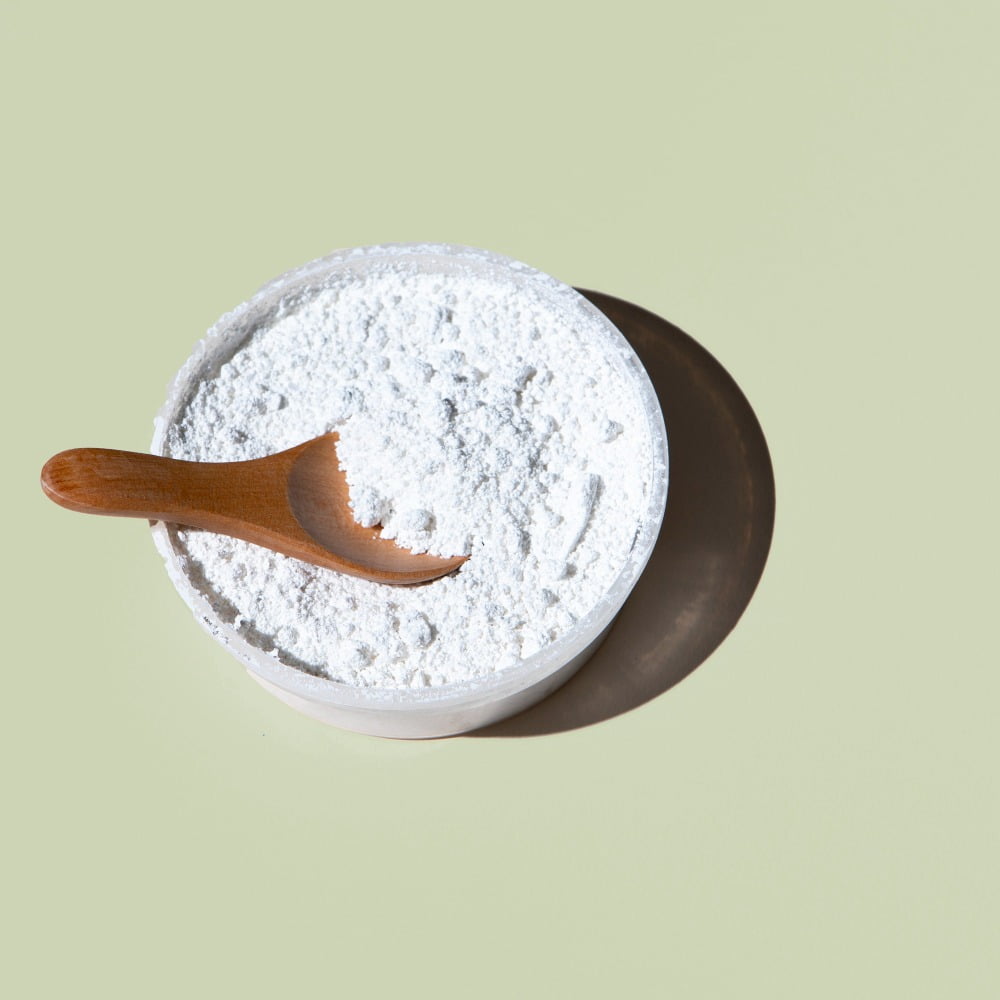FREE SHIPPING OVER $50
L-glutamine: Benefits, Side Effects, and Dosage
L-glutamine is one of the most abundant amino acids in the human body. It plays a vital role in many biological processes, such as protein synthesis, immune function, and gut health. L-glutamine benefits include supporting muscle growth, preventing muscle breakdown, and enhancing recovery after exercise. However, L-glutamine also has some potential side effects and interactions that you should be aware of before taking it as a supplement. In this blog post, we will explain what L-glutamine is, how it works, what are its benefits and side effects, and how to use it safely and effectively.
What Is L-Glutamine?

L-glutamine is an amino acid that your body needs for many functions. It is the most abundant amino acid in your blood and muscles. It helps build proteins, repair tissues, and support your immune system. It also acts as a fuel source for your cells, especially the ones in your gut and brain.
Glutamine is considered a conditionally essential amino acid. This means that your body can usually make enough of it, but sometimes it needs more than it can produce. For example, when you are sick, injured, or stressed, your body may use more glutamine than it can make. This can lower your glutamine levels and affect your health.
That’s why some people take glutamine supplements to boost their glutamine levels. Glutamine supplements may have benefits for people with certain conditions, such as leaky gut, inflammatory bowel disease, or cancer. They may also help athletes recover from intense exercise and prevent muscle loss.
However, glutamine supplements are not for everyone. They may have side effects or interact with some medications. They may also be unnecessary for healthy people who get enough glutamine from their diet.
L-Glutamine Benefits
L-glutamine plays a vital role in many bodily functions. It helps maintain the health of your immune system, digestive tract, muscles, and brain. Here are some of the benefits of taking L-glutamine supplements or eating foods rich in it:
- Immune Support: L-glutamine supports your immune system by providing fuel for the cells that fight infections and diseases. It also helps prevent the breakdown of your muscle tissue during stress or illness, which can weaken your immunity.
- Gut Health: L-glutamine promotes gut health by repairing the intestinal lining and preventing leaky gut syndrome, a condition where toxins and bacteria leak into your bloodstream and cause inflammation. It also helps balance the gut flora and prevent diarrhea or constipation.
- Brain Function: L-glutamine enhances your brain function by increasing the production of neurotransmitters such as glutamate and GABA, which are involved in learning, memory, mood, and sleep. It also protects your brain from oxidative stress and neurodegeneration.
- Muscle Growth and Recovery: L-glutamine boosts your muscle growth and recovery by stimulating protein synthesis and preventing muscle wasting. It also helps replenish your glycogen stores after exercise and reduces muscle soreness and fatigue.
- Blood Sugar Control: L-glutamine helps regulate your blood sugar levels by increasing the uptake of glucose by your muscles and liver. It also reduces the secretion of insulin, which can lower your risk of diabetes and obesity.
- Wound Healing: L-glutamine aids in wound healing by increasing the production of collagen, which is the main protein in your skin and connective tissues. It also reduces inflammation and infection around the wound site and speeds up the healing process.
L-glutamine Side Effects
L-glutamine is a safe and effective supplement for most people. However, some people may experience side effects from taking too much, or from having an allergic reaction to it. Here are some of the possible L-glutamine side effects you should be aware of:
- Stomach upset: Taking too much L-glutamine may cause nausea, vomiting, diarrhea, or abdominal pain. To avoid this, start with a low dose and increase gradually. You can also take it with food or water to reduce the risk of stomach upset.
- Headache: Some people may get a headache from taking L-glutamine, especially if they are dehydrated or have low blood sugar. To prevent this, drink plenty of water and eat a balanced diet. You can also take L-glutamine with a source of carbohydrates, such as fruit or juice, to maintain your blood sugar levels.
- Allergic reaction: Although rare, some people may have an allergic reaction to L-glutamine or other ingredients in the supplement. Symptoms of an allergic reaction include rash, itching, swelling, difficulty breathing, or anaphylaxis. If you have any of these symptoms, stop taking L-glutamine and seek medical attention immediately.
- Interactions with medications: L-glutamine may interact with certain medications, such as chemotherapy drugs, anticonvulsants, or lactulose. If you are taking any medications, consult your doctor before taking it. You may need to adjust your dosage or timing of your medications to avoid interactions.
Choosing the Right L-Glutamine Supplement
If you want to enjoy the benefits of L-glutamine, you need to choose a high-quality supplement that suits your needs and preferences. There are many factors to consider when buying an L-glutamine supplement, such as the form, the dosage, the purity, the price, and the brand reputation.
One of the most common forms of L-glutamine supplement is L-glutamine powder. This is a convenient and versatile option that allows you to mix the powder with water, juice, smoothies, or any other beverage of your choice. You can also adjust the amount of powder you use according to your desired dosage and taste.
L-glutamine powder has some advantages over other forms of the supplement, such as capsules or tablets. For example, L-glutamine powder is more easily absorbed by the body, as it does not need to be broken down by the digestive system. It also tends to be more cost-effective, as you get more servings per container than with capsules or tablets.
However, L-glutamine powder also has some drawbacks that you should be aware of. For instance, some people may find the taste of it unpleasant or bitter, especially if they use plain water as the base. You may also need to use a measuring scoop or a scale to ensure that you are taking the right amount of powder each time.
Another thing to look for when choosing an L-glutamine supplement is the purity and quality of the product. You want to avoid any supplements that contain fillers, additives, preservatives, or artificial colors or flavors. These may interfere with the absorption and effectiveness of L-glutamine, as well as cause unwanted side effects.
You also want to check the label for the source and origin. Some supplements may use synthetic or animal-derived L-glutamine, which may not be as safe or effective as natural or plant-based type. You should opt for supplements that use only natural and vegan-friendly ingredients.
L-Glutamine for Weight Loss: Fact or Fiction
L-glutamine plays a vital role in many bodily functions. But can it also help you lose weight and gain muscle? Some people claim that taking L-glutamine supplements can boost your metabolism, reduce your appetite, and increase your fat burning. Is there any truth to these claims, or are they just wishful thinking?
Weight Loss
The evidence for L-glutamine weight loss is mixed. Some studies have found that L-glutamine can reduce body fat and increase lean body mass in obese and overweight people, especially when combined with exercise and a low-calorie diet. Other studies have found no significant effect of L-glutamine on weight loss or body composition. The reason for these inconsistent results may be due to different doses, and durations, as well as individual differences in metabolism, diet, and activity levels.
One possible mechanism by which L-glutamine may promote weight loss is by affecting the levels of certain hormones that regulate appetite and energy balance. L-glutamine may increase the production of glucagon-like peptide-1 (GLP-1), a hormone that stimulates insulin secretion and reduces hunger. By modulating these hormones, you may feel fuller and eat less, leading to weight loss.
Another possible mechanism is by increasing the thermogenesis, of brown adipose tissue (BAT). BAT is a type of fat that burns calories to generate heat and maintain body temperature. L-glutamine may stimulate the activity of BAT by increasing the expression of uncoupling protein 1 (UCP1), a protein that allows BAT to produce heat. By activating BAT, L-glutamine may boost your metabolism and fat burning.
Muscle Gain
L-glutamine may also have some benefits for muscle gain, especially for people who exercise regularly. It is the most abundant amino acid in muscle tissue, and it is involved in protein synthesis, muscle repair, and recovery. During intense exercise, the levels of L-glutamine in the muscles can drop significantly, which may impair muscle growth and performance. Supplementing with L-glutamine may prevent this decline and provide enough of it for optimal muscle function. L-glutamine may also increase the levels of growth hormone (GH), a hormone that stimulates muscle growth and fat breakdown. By enhancing muscle protein synthesis and GH secretion, L-glutamine may help you build more muscle mass and strength.
The bottom line is that L-glutamine may have some benefits for weight loss and muscle gain, but they are not guaranteed or dramatic. The best way to lose weight and gain muscle is to follow a balanced diet that meets your nutritional needs and a regular exercise program that suits your fitness level and goals.
Dosage
The optimal dosage of l-glutamine depends on your individual needs and goals. There is no official recommended daily intake for l-glutamine, but some general guidelines according to this study are:
- For general health and wellness, you may consume about 3 to 6 grams of l-glutamine per day from your diet .
- For exercise recovery and muscle growth, you may take 5 to 10 grams of l-glutamine per day, preferably after your workout .
- For immune system support and wound healing, you may take 10 to 40 grams of l-glutamine per day, divided into several doses, under medical supervision .
- For gastrointestinal disorders such as leaky gut syndrome, inflammatory bowel disease, or short bowel syndrome, you may take 15 to 30 grams of l-glutamine per day, divided into several doses, under medical supervision .
L-glutamine may also interact with some medications or supplements, so consult your doctor before taking l-glutamine if you have any medical conditions or allergies. Therefore, do not exceed the recommended dosage of l-glutamine, and monitor your symptoms carefully.
FAQs
Yes, it’s generally safe to take L-glutamine daily. Many people use it for various health benefits. However, consult with a healthcare professional to determine the right dosage for your specific needs.
L-glutamine may support weight management by reducing sugar cravings, but it’s not a direct fat-burning solution. Incorporating it into a balanced diet and exercise routine is more effective for fat loss.
L-glutamine is usually safe when taken in appropriate doses, but excessive intake might lead to mild side effects like stomach issues. Always consult a healthcare provider before starting any new supplement.
L-glutamine offers various benefits, including supporting digestive health, reducing muscle soreness, boosting the immune system, and aiding in recovery after intense physical activity. Consult a healthcare professional for personalized guidance.
Before You Leave
L-glutamine is a powerful amino acid that can boost your immune system, improve your gut health, and enhance your muscle recovery. It is also easy to supplement with, as it comes in powder, capsule, or liquid form. In this blog post, we have discussed its benefits, dosage, and side effects, as well as some tips on how to use it effectively. We hope you have found this information helpful.
Struggling with sleepless nights? Discover the surprising link between gut health and your sleep quality in our next post.
If you found this blog post insightful, explore more by delving into our related articles:







